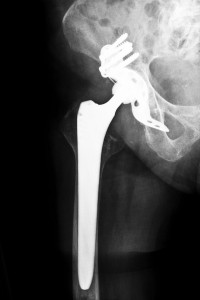
Stryker Rejuvenate
In July 2012, the Stryker Rejuvenate hip implant was recalled due to higher than expected failure rates. These hip implants are failing at a higher than normal rate due to draining of cobalt and chromium from the implant’s double modular neck. The joints within the components of the modular neck are corroding because of motion in the joints. The motion in the joint leads to fretting and corrosion, which is a defect in the design of the product that is causing serious adverse effects in recipients. Promotional material was sent to doctors by Stryker that stated: “Laboratory testing demonstrates the compatibility of these materials without concern for fretting and corrosion.” Thus, doctors did not have a reason to suspect that these implants were defective.
Recipients of the Stryker Rejuvenate hip implant are suffering from serious reactions to the metal contamination and are frequently requiring additional surgery to fix or replace the implant. These adverse reactions include prolonged pain long after surgery, inflammation, decreased motion, tissue damage, fluid in the hip compartment, and damage to the bone. Long term effects of metal toxicity within the body may have serious systemic effects on the nervous system as well as other organs in the body.
At the time of the initial recall, Stryker was not making the recommendation that all recipients of the Rejuvenate get blood tests for levels of cobalt chromium. However, recently, Stryker has made the recommendation that regular blood tests for chromium cobalt levels be done every six to twelve months.
Why Stryker Rejuvenate Hip Implants Are Failing
The Stryker Rejuvenate was tested only briefly prior to being sold to the public. The Rejuvenate is made of four parts, a metal neck, a ball, a femoral stem and an acetabular cup. The projected advantage of this design with multi parts is that it gives the surgeon many different neck parts with varying angles and lengths to better fit each patient. The problem with this implant is that whenever you have a metal joint that is in between two different metal components there is a risk involved of fretting as a result of movement within the metal joints and also corrosion of the metal neck. When fretting and corrosion occurs, metal components release metal debris into tissues surrounding the implant causing pain, fluid buildup, inflammation and implant failure.
Texas Stryker Hip Recall Attorney
If you were implanted with a hip device between 2009 and August 2012, you could have received a Stryker Rejuvenate. You should speak with your doctor to determine what kind of implant you have and then contact Texas Attorney Group, We’ll connect you with a Texas Stryker Hip Recall Attorney who can help protect your rights.





